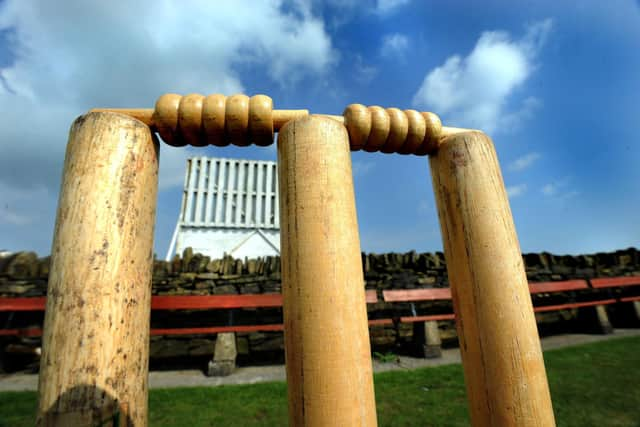New book delves into cricket history to reveal the 'posh' sport's untold story of elitism
But problems with the nation’s cricketing appear a little closer to home. A new book by University of Huddersfield alumni Duncan Stone delves into elitism in cricket and how it is reflected in society.
Years in the making, its publication is timely as it comes in the wake of a racism scandal that has engulfed the game, and Yorkshire County Cricket Club, following testimony from former Yorkshire player Azeem Rafiq.
Advertisement
Hide AdAdvertisement
Hide AdRather than racism, Dr Stone’s original research looked at the history of competitive cricket and how it came to be effectively banned in Surrey and the Home Counties for some 50 years.


The result, he argues, was a culture split defined by an urban industrial and ‘competitive’ north and a genteel, non-competitive rural south, the latter of which has come to define cricket in England today.
Dr Stone said: “The overall image of cricket is of a posh sport, despite the fact that thousands, if not tens of thousands, of working class people play to an egalitarian culture, based on community.
“This image of a posh sport has been created by a tiny minority of people. Cricket’s authentic play has been cast aside for this view, and by extension, English identity. You could argue the book isn’t about cricket at all. What it reveals is how the elite of this society retained control.”


Changing landscape
Advertisement
Hide AdAdvertisement
Hide AdOrganised sports under the creation of football’s FA Cup in the 1870s had changed the landscape in Britain as cricket ‘boomed’ under leagues and competitions, explained Dr Stone.
But there followed a ‘split’, he argues, as elite clubs realised that to play competitively they would no longer control who they played against. The hiatus of the First World War proved crucial in this.
Effectively ‘banning’ competitions enabled many southern teams to create their own “discrete realm” of club cricket, Dr Stone reflected, while in the North a very different culture developed. The book reflects on “tooth and nail” battles in the 1940s and 1960s over competitions as the game’s vibrancy dimmed.


It also draws parallels to how South Asian and African Caribbean communities may face exclusion from first-class (professional) and recreational cricket in recent years.
Genteel image
Advertisement
Hide AdAdvertisement
Hide AdDr Stone said: “It was like pulling a thread, the more I looked into elitism, the more unravelled. This monoculture of English cricket presents this genteel image that simply doesn’t represent the majority of players.
“We can learn from the game’s history. What made cricket popular was competition, and I think the cricket world would do well to consider that.
“As much as the England team represents England, it’s not representative. As long as that remains the case, the game has a problem.”
Book
Different Class: The Untold Story of English Cricket, is published January 11, with pre-orders available now.
Advertisement
Hide AdAdvertisement
Hide AdIt is based on findings of Dr Stone’s PhD completed at the University of Huddersfield in 2013, and supervisor Prof Barry Doyle said it serves as testament to determined research: “The book builds on the thesis but takes it in new and more challenging directions that will definitely ruffle a few feathers in the cricket establishment.”
________________________________________________________________________________
Support The Yorkshire Post and become a subscriber today. Your subscription will help us to continue to bring quality news to the people of Yorkshire. In return, you'll see fewer ads on site, get free access to our app and receive exclusive members-only offers. Click here to subscribe.
